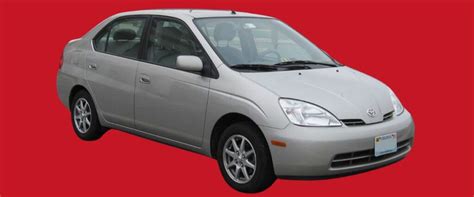The Toyota Prius, introduced in 1997, revolutionized the automotive industry with its groundbreaking hybrid technology. The 2005 model marked a significant milestone in Prius’s evolution, featuring a robust and efficient hybrid battery system that propelled the vehicle to unparalleled fuel economy and lower emissions. This article provides an in-depth examination of the hybrid battery for the 2005 Toyota Prius, covering its components, specifications, lifespan, maintenance, and cost.

Components and Specifications
The hybrid battery for the 2005 Toyota Prius consists of nickel-metal hydride (Ni-MH) batteries arranged in a modular design. These batteries store electrical energy and release it to power the electric motor, which assists the gasoline engine in driving the vehicle. The battery pack comprises:
- 38 Ni-MH battery modules
- Cooling system to regulate battery temperature
- Battery management system to monitor and optimize battery performance
Lifespan and Maintenance
The lifespan of a Toyota Prius hybrid battery is influenced by various factors, including driving habits, climate conditions, and maintenance. On average, a well-maintained Prius battery can last between 10 to 15 years or 150,000 to 200,000 miles. To maximize battery longevity, drivers should adhere to the following maintenance practices:
- Avoid rapid acceleration and deceleration, as these actions discharge the battery more quickly.
- Use cruise control on highways to maintain a steady speed, minimizing unnecessary battery drain.
- Park the vehicle in a shaded area during hot weather to prevent overheating.
Cost
Replacing a Prius hybrid battery can be a significant expense. The cost varies depending on factors such as the battery’s capacity and installation fees. As a general estimate, a replacement battery for a 2005 Toyota Prius can range from $2,000 to $4,000.
Tips and Tricks for Battery Optimization
Extending the lifespan and efficiency of a Toyota Prius hybrid battery involves a combination of driving techniques and maintenance strategies. Consider the following tips:
- Regenerative Braking: Prius’s regenerative braking system captures energy during braking and stores it in the battery, reducing the reliance on the gasoline engine.
- EV Mode: When possible, utilize the EV mode, which allows the vehicle to run solely on electric power for short distances.
- Regular Battery Checks: Periodically check the battery’s condition using the vehicle’s diagnostic system or have it inspected by a qualified mechanic.
Common Mistakes to Avoid
To prevent premature battery failure and unnecessary expenses, avoid these common mistakes:
- Ignoring Battery Warning Lights: Neglecting battery warning lights can lead to severe damage and costly repairs.
- Deep Discharging: Depleting the battery completely can significantly reduce its lifespan.
- Overloading the Battery: Using the vehicle for heavy towing or prolonged idling can strain the battery.
Conclusion
The hybrid battery plays a crucial role in the Toyota Prius’s fuel efficiency and environmental performance. Understanding its components, lifespan, and maintenance requirements is essential for maximizing its longevity and cost-effectiveness. By following the tips and avoiding common mistakes, Prius owners can ensure the optimal performance of their hybrid battery for years to come.
